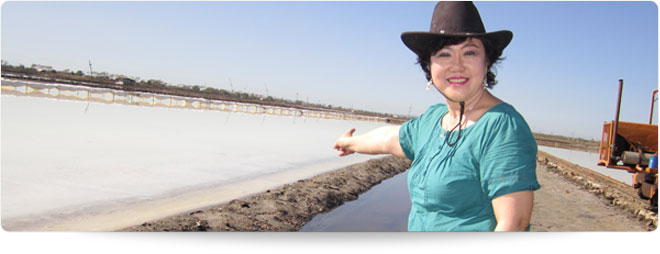
Menu
What is Salt?
Salt is a compound made up of sodium and chloride ions. Salt is necessary for the proper function of the body. It balances the absorption of liquids in the body and maintains its level of moisture. It enters the body by eating and digesting food. Apart from its household use, salt has many other uses. It is estimated that salt has 14,000 specific industrial applications. Several categories of uses have been identified.

In food processing industry, salt is used as a condiment seasoning, preservative, flavoring and refrigerant. In manufacturing, it is an active ingredient in detergents, metallurgical, refining, filtering and water treatment processes. Feedmills and livestock growers require salt to keep their animals healthy. Processed food manufacturers employ salt as an iodine carrier. Health care providers include it as an ingredient in oral dehydration and dextrose formulas. With so many applications, salt is an indispensable part of the country’s industries and a ready supply is needed to keep with the strong demand for it. Fortunately, salt occurs naturally in seawater. It is harvested from the sea through evaporation and the mining of salt deposits.
In the Philippines, a total of 5,080 hectares are committed to producing salt through solar evaporation. There are several grades of salt produced by varying the methods of evaporation. Traditional salt farms use ceramic-tiled to produce commercial salt having about 85% NaCl content. About 80 percent of the area used in producing salt utilizes this method. Another method of producing salt involves a technique known as fractional crystallization, which allows the salt farm to produce industrial salt with at least 92% NaCl content. Pure dried vacuum salt has 99.9% purity and is free flowing. However, it is imported into the country because no facility exists to produce this kind of salt.
About Us

Salinas is a company envisioned to lead and professionalize the salt industry in production, distribution and marketing. We shall competitively service the basic needs of the different industries of the country through salt and allied strategic industries of water, food and feeds.
Our News
Products
Contact Us
-
33 Sct Rallos Street
Quezon City 1103 - (02) 8371 - 4304
- +63 921 652 1040
- admin@salinas.com.ph
Follow Us
2023 © Copyright Salinas (IM) Corporation
Created by: Edwin Lopez

